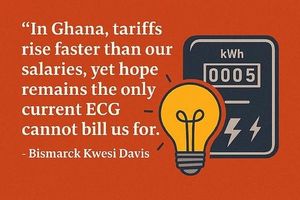The Mexican government is preparing for significant financial changes as it outlines its forthcoming federal budget for 2025. The proposal, presented by Finance Minister Rogelio Ramírez de la O, showcases spending plans exceeding 9 trillion pesos, marking a notable increase from the previous year. Specifically, the planned budget is set at 9.3 trillion pesos (approximately $460 billion), reflecting a 2.6% rise from 2024, though it translates to a 3.6% decrease when adjusted for inflation.
Congress, which is predominantly aligned with the ruling Morena party and its allies, is likely to approve this budget proposal shortly. With the allocation of funds finalized, the government has identified clear winners and losers within the budgetary framework.
The Losers
Unsurprisingly, the Defense Ministry—now simply referred to as “Defensa”—will experience the most substantial cuts, facing a staggering reduction of 43.8% from its 2024 budget. The ministry will be allocated 151.99 billion pesos, significantly affecting its operations across various projects, including the controversial Maya Train and other infrastructure tasks.
The Maya Train project, which has drawn both interest and criticism, is scheduled for just 40.82 billion pesos next year—a sharp drop of 67.5% compared to the current year's funding. This reduction is concerning to many, especially considering Defensa's involvement goes beyond traditional military duties to encompass public security and infrastructure development.
Other significant agencies facing cuts include:
- The Environment Ministry (Semarnat): Funding is expected to decline 39.4% to 44.37 billion pesos.
- The Security Ministry: Funding is set to decrease by 36.2% to 70.44 billion pesos, even as it gains new powers due to constitutional reforms amid rising insecurity.
- The Health Ministry: A reduction of 34% to 66.69 billion pesos.
- The Energy Regulatory Commission and the National Hydrocarbons Commission: Each will experience cuts of nearly 33%.
- The Culture Ministry: Facing a funding decline of 30.8% to 12.08 billion pesos.
- The National Transparency Institute and the National Institute of Statistics and Geography: Also expected to see cuts of 18.1% and 17.5% respectively.
Notably, state oil company Pemex is also on the list of budget losers. Although it continues to play a pivotal role within the energy sector, the 2025 budget proposes 464.25 billion pesos for Pemex, representing a 7.5% annual reduction. This includes 136 billion pesos explicitly earmarked to service its significant debts.
The Winners
Contrastingly, not all sectors are feeling the pinch. The federal budget’s winners largely include ministries focused on infrastructure and development. The Agrarian, Land, and Urban Development Ministry (Sedatu) stands out, receiving funding increases of 183.3% to nearly 38 billion pesos to launch ambitious housing projects aimed at constructing 1 million new homes over the next six years.
The Infrastructure, Communications, and Transportation Ministry is also slated for a notable boost, with funding increasing by 72% to 140.79 billion pesos. This funding aims to support extensive infrastructure overhauls, including railway enhancements and highways, alongside new industrial developments.
The allocation trends for 2025 reveal:
- Non-sectored entities like the National Institute for Indigenous Peoples and the Executive Commission for Attention to Victims are set to receive 21% more funding, totaling around 174.62 billion pesos.
- The State Workers Social Security Institute (ISSSTE) and the Federal Electricity Commission (FCE) will see modest increases of 6%.
- Funding to the Mexican Social Security Institute (IMSS) is expected to rise by 4.7%, ensuring continued support for public health and social programs.
- Major welfare initiatives and public education will also see slight increases to support vulnerable populations and educational institutions.
Impacts of Pemex's Debt and Funding Cuts
Within this economic framework lies the substantial influence of Pemex, Mexico’s state-run oil company, which not only forms the backbone of the national energy strategy but is also deeply embroiled in financial troubles. With over $100 billion of debt resting on its shoulders and oil production showing signs of decline, Pemex's challenges pose significant risks for the nation’s economic recovery plan.
The government’s commitment with the budget reflects its acknowledgment of these troubles, aiming to stabilize Pemex to fulfill its energy responsibilities. Debt repayments amounting to 136 billion pesos, aimed at alleviating some of the burden Pemex carries, imply recognition of the necessity for immediate financial support to prevent defaults or worsening fiscal health.
Despite these moves, experts warn the cuts may not be enough to reverse the downward spiral Pemex is currently experiencing. Questions linger over the efficacy of the proposed funding—will it truly enable Pemex to innovate, expand, and meet production demands?
A Vision Toward Recovery
Investment is key to revitalizing Pemex's operations, which is directly tied to national priorities of energy security and economic stability. The government might focus on strategic reforms, possibly enhancing operational efficiency, advancing technology for oil extraction, and emphasizing sustainability as the world pivots more toward renewable resources.
While the proposed budget is packed with sharp contrasts, it shows the Mexican government's approach toward both empowerment and austerity. President Claudia Sheinbaum's emphasis on balancing needs is apparent—how the state navigates these financial waters will shape the economic narrative across the nation.
The government’s assessment of winners and losers highlights its priorities for addressing immediate infrastructural needs whilst managing the persistent challenges surrounding Pemex's historical financial woes. Economic recovery seems reliant not only on continuing support for national projects but also on Pemex's ability to recover and meet the demands of its economic responsibilities.
Moving forward, the stakes are high. The upcoming budget discussions and approvals will be pivotal, portraying the governmental priorities and the potential repercussions on Mexican society and its economy.



